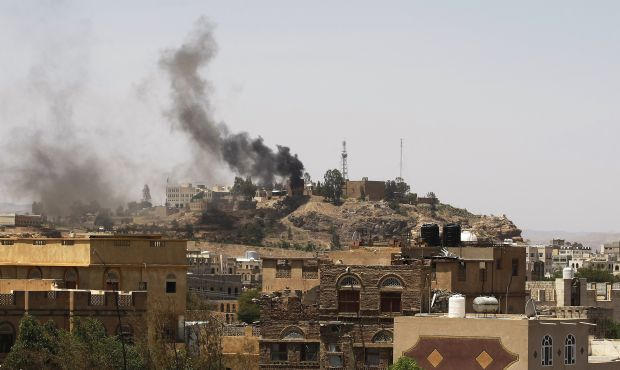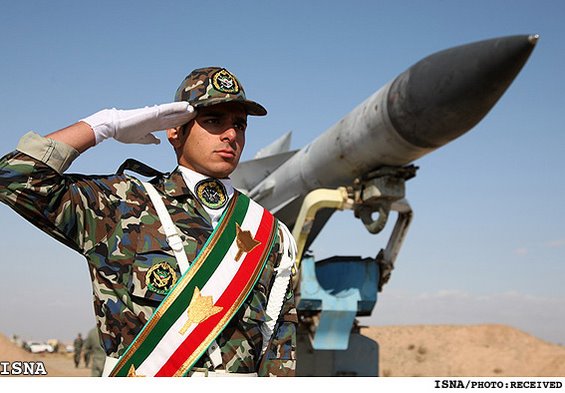
Although the beginnings of the Arab Spring’s revolutions might seem similar, their evolutions are totally different; the Yemeni revolution is no exception. The situation in Yemen has recently evolved dramatically, leaving the state in a civil war. This leaves limited choices for the legitimate Yemeni president Hadi to seek foreign assistance. Based on the invitation by President Hadi, a Saudi Arabian-led coalition constituted of ten Arab states launched a military operation against the Houthi rebels known as “Decisive Storm”. Although the traditional “negative equality” doctrine of international law prohibits intervention in civil wars on either side of the parties, I argue in this post that there is no room for applying this principle in the Yemeni case for two reasons: first, I believe that the principle itself is no longer applicable in contemporary international law, second even if it is, the Yemeni case lacks the requirements for the application of this doctrine.
The principle of the prohibition of intervention in civil wars emerged in post Cold War era based on 1975 resolution of the Institute de Droit International (IDI), in an attempt to limit military interventions and the use of force by superpowers in internal conflicts and in order to guarantee self-determination. However, this previously mentioned resolution allows two exceptions, which are the provision of humanitarian aid in art (4) and the response to unlawful foreign intervention in art (5).
The principle of “negative equality” is no longer applicable
Recent state practice as analyzed by Dapo Akande & Zachary Vermeer here breaks with the general rule of non-intervention in civil wars. This state practice indicates that third states can lawfully intervene alongside with governments with or without the latter’s consent in cases of terrorist attacks. Examples include the French intervention in Mali based on an invitation from the Malian president which was reflected under UN SC Resolution 2085 which affirmed that assisting Mail is based on respecting its sovereignty. Other examples are the US led coalition against ISIS in Iraq and Syria backed by the Iraqi president’s invitation and the US intervention in Afghanistan in 2001 with no condemnation from the international community.
This practice has been further developed in cases that fit with the magnitude of human tragedy to fall under a broader concept of R2P without any invitation. Examples include the intervention in Iraq known as “Desert fox operation in 1998, Kosovo in 1998, Georgia in 2008, Libya in 2011, and the recent intervention in Iraq to rescue the Yazidis in 2014.
The principle of negative equality does not apply in Yemen.
The principle of negative equality lacks the basis for application in the case of Yemen. First, tracing the history of the principle and the reasons behind it proves that it is driven by the necessity to limit intervention by superpowers in order to pave the way for exercising self-determination by the opposition when they seek it. In addition, according to IDI Res 1975, if a foreign state unlawfully intervenes with the rebels, it allows a third state to lawfully intervene alongside with the government. Finally, the effective control test might not be the sole test for deciding the legitimacy for presidents in contemporary international law.
Self-determination

http://events.tru.ca/event/2014/international-seminar-indigenous-self-determination
The principle of non intervention in civil wars is a purpose–based norm that seeks to guarantee peoples the right to exercise self determination as expressed in the UN Human Rights Covenants of 1966 and in GA resolution 2625 (XXV). In the context of civil war, peoples should have the right to choose their own governments without interference by third states, which was clear in the articulation of Art 1(a) of IDI Res 1975. According to the language of the article that describes rebels as “insurgent movements”, those rebels should be seeking self determination and to be supported by a significant part of the population, which was affirmed by M. Dietrich Schindler in his interim report presented at the IDI session in Rome in 1973:[1]
“..assistance to the established government in case of civil wars … is illegal … when the insurgents, without having received any substantial assistance from abroad, succeed in establishing their control over a significant part of the territory and are supported by a large part of the population” (translated from French, emphasis added).
In addition, Georg Nolte and Doswald-Beck argue that third state intervention, even by consent, is unlawful if it is against the expressed will of a significant part of the population such as in uprisings which meet the requirements of the right to self-determination. By applying these criteria to the Houthis, although that they have effective control over a significant part of the territory, they are not supported by a significant part of the Yemeni population which does not represent an exercise of self-determination. To illustrate, although the religious sect (Zaydi) which most the Houthis are affiliated to, represent about one third of the Yemeni population, not all the Zaydis are supporting the Hountis.
Counter- intervention

One of the exceptions to the non-intervention in civil wars principle is the case of counter intervention as expressed in Art(5) of IDI Res 1975. To illustrate, if a foreign state intervenes on the side of the rebels in any of the ways expressed by the resolution which vary from military to financial to economic support, this gives third states the right to intervene on the side of the government. Therefore, the Iranian arming of the Houthis is considered unlawful intervention according to the ICJ judgment in Nicragua Case where the court considered arming the rebels as unlawful intervention. In addition, according to Hojatoleslam(a Shiite clerical rank just below that of Ayatollah and a representative of Supreme Leader Ayatollah Ali Khamenei to the Iranian Revolutionary Guard Corps (IRGC)), Yemen has become an area of their territorial hegemony, which was later affirmed by Ali Akbar Velayati, the foreign affairs adviser to Khamenei(and was further analyzed by Aliaa Makady here in this blog). In addition, there is a Yemeni evidence- based claim affirmed by Reuter’s investigations of the Iranian support to the Houthis with no official declared denial from Iran. Therefore, this triggers the lawful right of the Yemeni government to seek assistance from third states, which is what happened in the “Decisive Storm” operation by the Saudi Arabian led coalition.
Invitation by the president
After the adoption of the United Nations Charter, there has been a debate concerning the legality of intervention by invitation. Christine Gray, argues in her book “International Law and the Use of Force” that consent by the government does not legalize state intervention in a civil war with two exceptions either UNSC authorization or a counter intervention.On the other hand, Yoram Dinstein’s argument is that state practice, such as the French intervention in Mali or US airstrikes against ISIS in Iraq and Syria proves that consent by the government may legalize intervention. This position was affirmed by ICJ in the Nicaragua Case:
“…it is difficult to see what would remain of the principle of non-intervention in international law if intervention, which is already allowable at the request of the government of a State, were also to be allowed at the request of the opposition.”
Furthermore, there has been a debate over the existence of “effective control” standard over Yemen by the president Hadi in order to determine his capacity to consent for intervention. State practice shows that this standard is not always decisive; there are some cases in which the international community disregarded territorial effectiveness and replaced it with accepting the internationally recognized governments, such as Somalia and Libya.
To sum up, the situation in Yemen reached the edge of a civil war and the threshold of a human tragedy. However, there is no room for applying the principle of non- intervention in civil wars because state practice in the contemporary international law showed that it is no longer applicable. Second, even if we were to assume that this principle is still valid, there are three reasons to disqualify its application in the case of Yemen: first the “Decisive Storm” operation falls under a counter-intervention in response to Iran’s prior intervention on the side of the Houthi rebels. Second, the Houthis lack support by the Yemeni people, so there is no room for a claim of self determination, and finally, the effective control standard is no more the sole determinant of the legitimacy of presidents in having the capacity to consent to foreign interventions.
[1]IDI Year book, 468, 1973.
Very well said Sara. I really like how you approached the Yemeni case by going to the conclusion that the principle of non-intervention cannot be applicable and if it is applicable there will be some barriers that will not make it applicable. I think the problem is because the principle of non-intervention is constantly taken from the perspective that there should be an advantage for one country to intervene. I mean there are no “good” countries that really feel the responsibility towards the needed countries without wanting “something” from them. We don’t have any country that has pure intentions, such a shame.
LikeLike